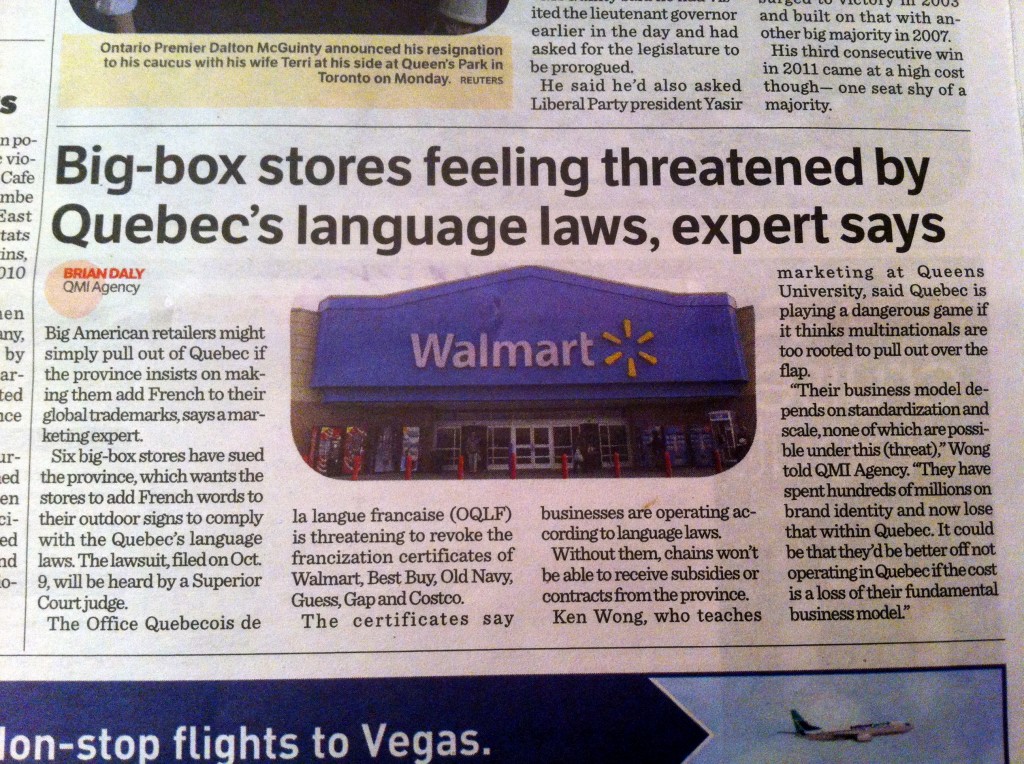Big-box stores like Walmart and Old Navy are far from satisfied with Quebec’s language laws. The province insists on adding French words to retailers’ outdoor signs to comply with these laws. Six stores have sued Quebec because of this, and the province threats to withdraw the francization of these large corporations. Companies argue that they have business models that depend on a degree of uniformity for their products on a global scale. In other words, their brand identity is subject to change by Quebec’s laws. Since most large companies are not looking to lose this part of their business model, they may leave Quebec.
Based on class discussions about Marketing, I asked myself this: how do companies expanding globally comply with language laws and severe cultural barriers? I looked into McDonald’s expansion because it is recognized on a global-scale. When they enter new countries, they change the lettering of their brand. For example, in Bulgaria, McDonald’s is written “Макдоналдс” to be legible for Bulgarians.

McDonald’s in Bulgaria written in cyrillic to be legible for Bulgarians
Likewise, the company changes its menu based on cultural barriers/preferences. In India, it offers chicken, veggie and local options rather than beef burgers because of its Hindu population. I suppose that McDonald’s (being a burger chain) did lose some brand identity when not selling beef burgers, however, they managed to be successful in India regardless. McDonald’s is still known world-wide for its brand regardless of the changes it has had to make in order to expand.

McDonald’s Menu in India – offering unique flavours to assimilate to Indian culture
In my opinion, brands expanding into Quebec should comply with language laws because it is a greater advantage for them to sell there.
Quebec Article:
http://nrn.com/article/mcdonald%E2%80%99s-lessons-learned-india
http://www.mcdonaldization.com/forum/viewtopic.php?f=1&t=42

